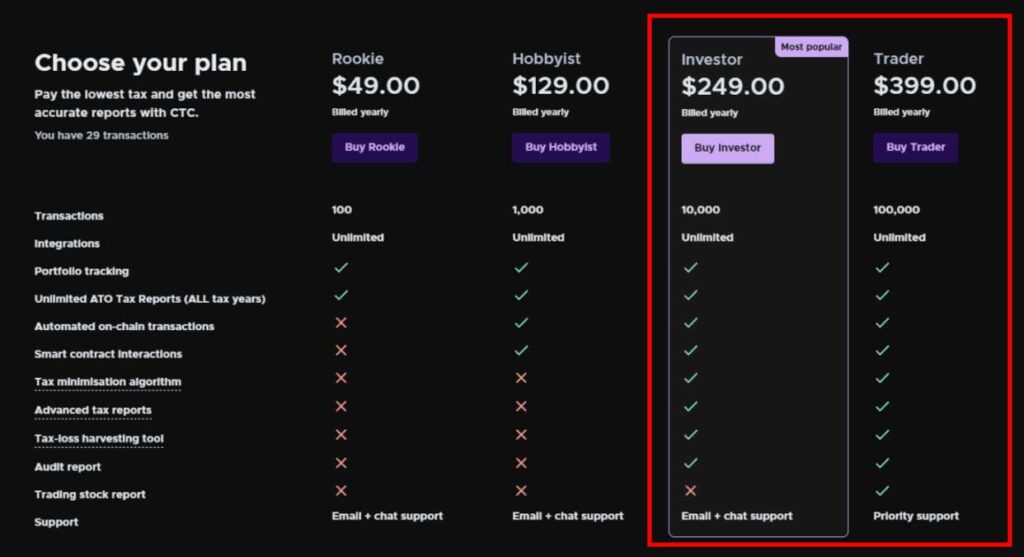Crypto Tax Calculator: The Best Powerful Complete Guide for Investors

Crypto Tax Calculator as cryptocurrency continues to gain global popularity, tax authorities worldwide are paying close attention to crypto transactions, making crypto tax reporting more crucial than ever. This guide will cover everything you need to know about crypto tax calculators, how they work, why you need one, and then essential factors for choosing the best tool for your needs.
Why Use a Crypto Tax Calculator?
Cryptocurrency transactions often involve buying, selling, trading, and then staking, which can lead to a complicated tax situation. Crypto tax calculators simplify this process by automatically calculating tax liabilities, helping users stay compliant with tax regulations.
Benefits of Using a Crypto Tax Calculator:
- Accuracy – Calculators reduce the risk of manual errors when calculating gains and then losses across multiple transactions.
- Time Efficiency – Automating calculations saves considerable time, especially for high-frequency traders.
- Compliance – Calculators incorporate the latest tax laws, ensuring users remain compliant with evolving regulations.
- Data Organization – Many calculators offer features to consolidate transaction histories, making it easier to manage records for tax audits.
- Report Generation – Most tools offer exportable reports that simplify the filing process for tax authorities.
Understanding Crypto Taxation
1. Capital Gains Tax

Crypto transactions often result in capital gains or losses, subject to capital gains tax. When you sell or trade cryptocurrency for a higher value than you initially paid, you incur a taxable gain. Conversely, selling for less than the purchase price results in a loss, which may be deductible on your taxes.
Types of Capital Gains:
- Short-term Capital Gains – Gains on crypto assets held for less than one year, typically taxed at higher rates.
- Long-term Capital Gains – Gains on assets held for over one year, often taxed at lower rates to encourage long-term investment.
2. Income Tax on Crypto Earnings
Cryptocurrency earned as income (from mining, staking, or airdrops) is generally subject to income tax. The fair market value of the crypto at the time it is received is considered taxable income. This income is typically reported as ordinary income and then taxed at the individual’s applicable tax rate.
3. Taxation on Staking and Mining
Staking rewards and mining are often taxed as ordinary income. Mining may also and involve expenses like electricity and then equipment costs, which can be deducted. However, any subsequent sale of mined or staked crypto will trigger capital gains taxes.
Key Features of a Crypto Tax Calculator
A reliable crypto tax calculator should offer essential features to accommodate various needs, including support for different jurisdictions, multiple transaction types, and then robust reporting capabilities.
1. Multiple Platform Integrations
Top crypto tax calculators integrate with popular exchanges and then wallets, making it easier to import transaction histories. This reduces the need for manual entry and then ensures accurate data collection. Look for calculators compatible with major exchanges such as Binance, Coinbase, Kraken, and then other top crypto trading platforms.
2. Support for Various Transaction Types
Crypto tax calculators should support a range of transaction types, including buys, sells, trades, staking rewards, airdrops, gifts, and then donations. By offering compatibility with all transaction types, the tool can comprehensively assess your tax liability.
3. Advanced Reporting
A comprehensive crypto tax calculator should allow users to generate tax reports in various formats, including IRS Form 8949, K4 for Sweden, and then CGT reports for the UK. These tools should also support export to popular tax-filing software like TurboTax and H&R Block.
4. Real-Time Tax Estimates
Some calculators offer real-time tracking and then estimates, giving you an up-to-date view of potential tax liabilities throughout the year. This can be particularly useful for frequent traders who want to gauge their tax exposure regularly.
5. Cost Basis Calculation Methods
Different countries allow different cost basis methods, such as FIFO (First-In, First-Out), LIFO (Last-In, First-Out), and Specific Identification. A good calculator offers flexibility to choose the appropriate method based on your jurisdiction and then tax strategy.
How to Use a Crypto Tax Calculator
Using a crypto tax calculator involves three basic steps: importing transaction data, reviewing calculations, and generating tax reports.
Step 1: Import Transaction Data
- Connect to Exchanges and Wallets – Most calculators provide direct integration with major exchanges. Simply connect your accounts to import your transaction history.
- Manual Data Entry – For unsupported exchanges or offline wallets, manually enter transaction details. Ensure accuracy by double-checking dates, amounts, and then types.
Step 2: Review Calculations
After importing data, review calculated gains and then losses. Some calculators display these as separate transactions to help you spot errors or anomalies, ensuring that the data accurately reflects your activities.

Step 3: Generate Reports
Once satisfied with the calculations, generate reports for your tax filing. Most calculators allow you to export data in tax-ready formats, including CSV, Excel, or PDF, making it easier to report to tax authorities.
Popular Crypto Tax Calculators: A Comparison
Here’s a look at some of the leading crypto tax calculators available:
1. Koinly
Koinly is a user-friendly calculator that offers integration with over 300 exchanges, wallets, and then blockchains. It supports multiple tax jurisdictions, including the US, UK, Canada, and Australia. Features include:
- Support for FIFO, LIFO, and then Specific Identification cost basis methods
- In-depth capital gains reports
- Real-time tax estimation
- Export to tax software like TurboTax and Xero
2. CoinTracker
CoinTracker is a widely recognized tool that supports high-frequency traders and DeFi users. It provides real-time portfolio tracking alongside tax calculation. Notable features include:
- Extensive DeFi support for lending, staking, and other DeFi transactions
- Detailed transaction breakdowns for ease of review
- Real-time portfolio tracking and capital gains reporting
- Automatic syncing with top exchanges and wallets
3. TokenTax
TokenTax is ideal for advanced traders, offering support for complex transactions like margin trading and then lending. It provides detailed tax reports for countries like the US and then Canada and then supports multiple tax filing formats. Features include:
- Tax-loss harvesting insights
- Comprehensive reporting for DeFi and then NFTs
- Full CPA services for professional tax assistance
4. CryptoTrader.Tax
CryptoTrader.Tax focuses on providing an easy and then quick solution for crypto tax reporting. It’s popular among beginners and then offers quick integrations and then easy-to-follow workflows. Key features include:
- Simple, beginner-friendly interface
- Direct export to major tax filing platforms
- Detailed reports on taxable gains, losses, and then income
- Advanced DeFi support for complex transactions
Cost Basis Methods Explained
Choosing the right cost basis method is crucial for accurate tax calculations. Here’s a look at common cost basis methods available in most crypto tax calculators:
- FIFO (First-In, First-Out) – The oldest asset purchased is considered sold first. This is the default for US tax reporting.
- LIFO (Last-In, First-Out) – The most recent purchase is considered sold first. LIFO can be beneficial in high-inflation environments.
- HIFO (Highest-In, First-Out) – Sells the asset with the highest cost basis first. HIFO can help minimize gains in taxable events.
- Specific Identification – Allows you to specify which assets are sold, often beneficial for advanced tax planning.
Tax Considerations for International Users
Different countries have unique regulations for crypto taxation. Here’s a summary of how some countries handle crypto taxes:
- United States – The IRS treats crypto as property, meaning transactions are subject to capital gains tax.
- Canada – Crypto is also considered property in Canada. Half of capital gains from crypto sales are taxable.
- United Kingdom – HMRC taxes crypto as either income or capital gains, depending on the nature of transactions.
- Australia – The ATO treats crypto as property. Capital gains tax applies to transactions, with concessions for long-term holdings.
Crypto Tax Filing Tips
Filing crypto taxes can be complex, but these tips can help simplify the process:
- Keep Records Updated – Maintain accurate records of all transactions, including trades, purchases, and then staking rewards.
- Use Portfolio Tracking Apps – Tools like CoinStats or Blockfolio can track your portfolio and then ensure data accuracy.
- Set Aside Funds for Taxes – Crypto gains are often subject to tax, so set aside a portion of your gains to avoid surprises.
- Consider Professional Help – For high-frequency traders or those involved in DeFi, consulting a tax professional may simplify the process.
Conclusion
Crypto tax calculators are essential tools for managing tax obligations in the complex world of cryptocurrency. With the right calculator, you can save time, increase accuracy, and then ensure compliance. By using a tool suited to your needs, you’ll be better equipped to handle your crypto taxes, making tax season less stressful
Read more: Cryptocurrencies for Trading





